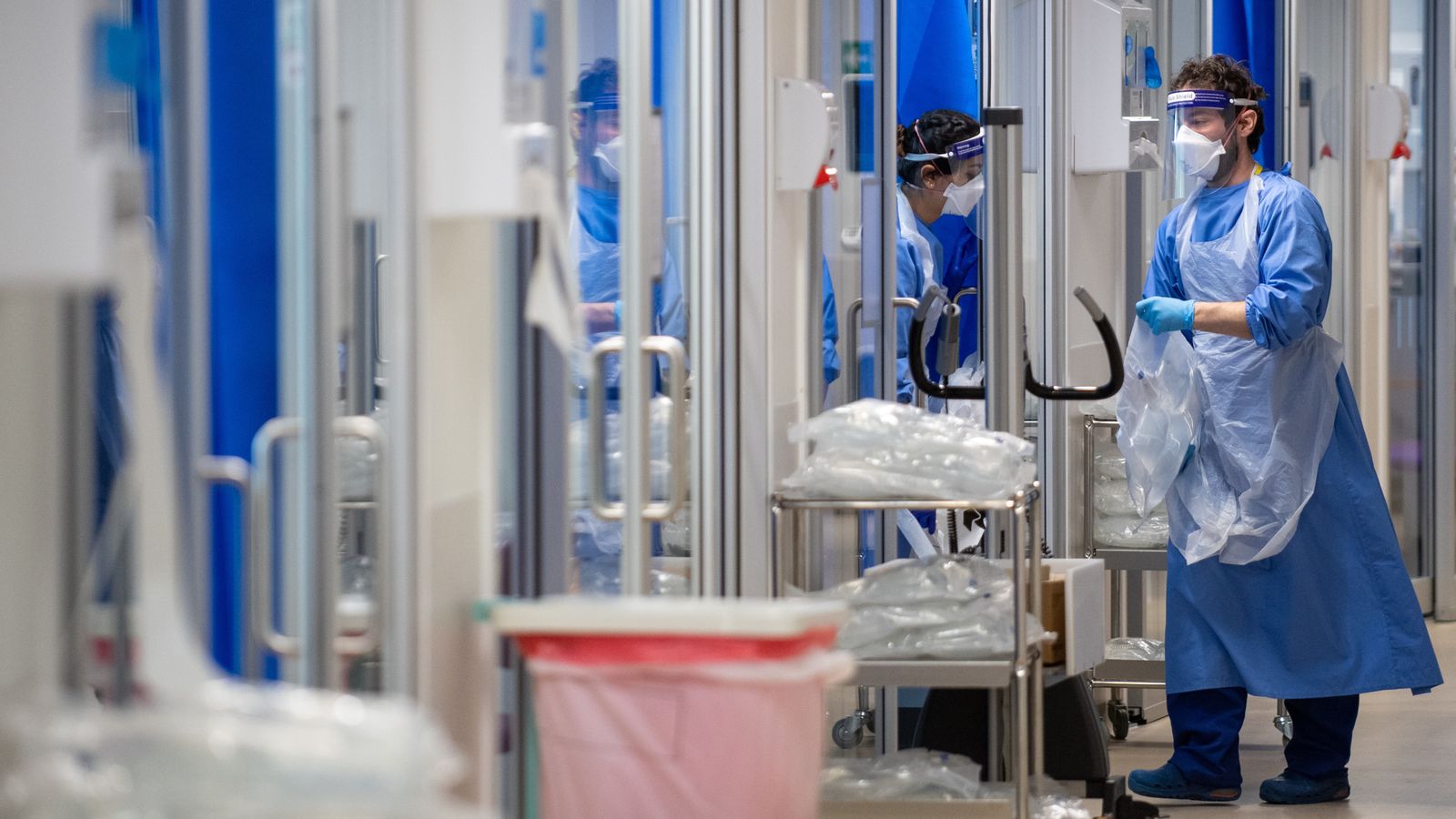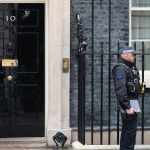Boris Johnson’s decision to press ahead with easing coronavirus restrictions in England is “irresponsible”, senior doctors say.
The prime minister announced on Monday that most of the last remaining restrictions in England would be axed from 19 July.
This was despite modelling showing that there could be 1,000 to 2,000 hospital admissions per day, with deaths reaching between 100 and 200 per day by mid-August, when the peak of the current wave is expected.
Please use Chrome browser for a more accessible video player
The British Medical Association said easing restrictions risked “potentially devastating consequences”.
BMA council chair Dr Chaand Nagpaul said: “It’s irresponsible – and frankly perilous – that the government has decided to press ahead with plans to lift the remaining COVID-19 restrictions on 19 July.
“The BMA has repeatedly warned of the rapidly rising infection rate and the crippling impact that COVID-related hospitalisations continue to have on the NHS, not only pushing staff to the brink of collapse but also driving up already lengthy waiting times for elective care.
“The prime minister repeatedly emphasised the importance of a slow and cautious approach, but in reality the government is throwing caution to the wind by scrapping all regulations in one fell swoop – with potentially devastating consequences.”
Mr Johnson had earlier admitted the pandemic “is not over” and that people should still proceed with caution, as figures showed a further 34,471 laboratory-confirmed infections in the UK in the 24 hours to 9am on Monday.
Please use Chrome browser for a more accessible video player
Professor Adam Finn, a member of the government’s Joint Committee on Vaccination and Immunisation (JCVI), said: “I sympathise with the political message that (restrictions) can’t go on forever but on the other hand we really don’t want to get to a situation where things get so bad that we have to reimpose restrictions and it’s a very delicate balancing act to get that right.
“The more you let the genie out of the bottle the harder it is to put it back in, though there is a large amount of uncertainty.”
Please use Chrome browser for a more accessible video player
But Paul Hunter, professor in medicine at the University of East Anglia, was more optimistic, saying: “Although hospitalisation rates are rising rapidly at present, we can expect these to have slowed substantially within the next week or two.
“That does not mean that relaxing restrictions has no risk. But I would argue leaving Step 4 (lockdown lifting) till the autumn carries a far greater risk.”






















